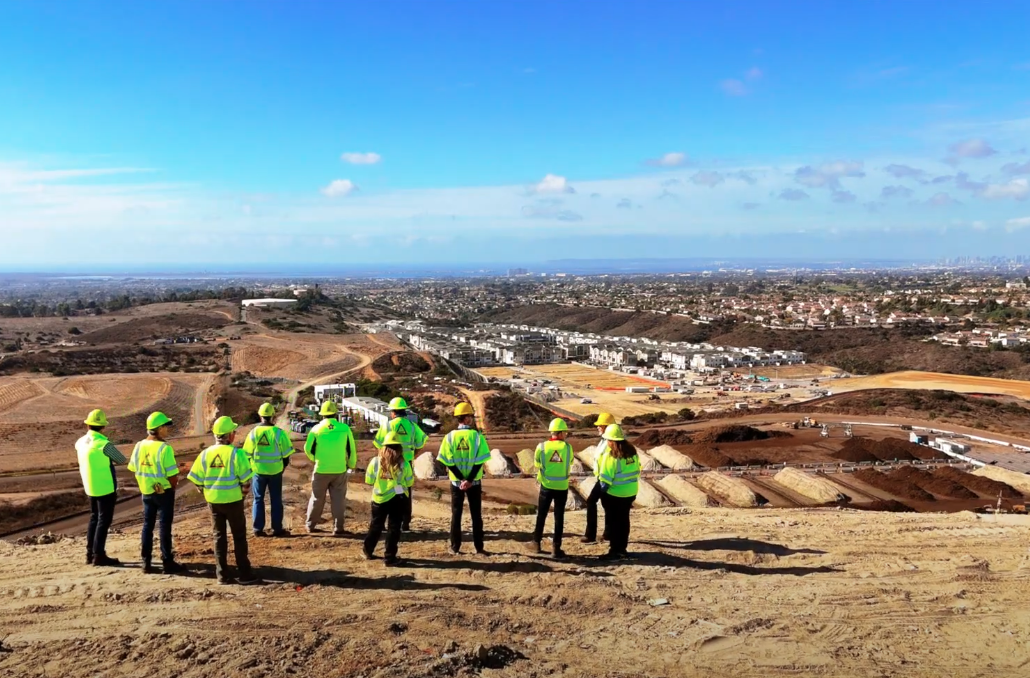
Building a Cleaner Future Through Composting and Organics Recycling
Learn how our organics recycling operations help ensure food and yard waste sees new life and purpose in our communities.Byline: BTB Editor
July 25, 2025 / Time to read: 5 minDid you know that food waste is the single
As a leading provider of organics recycling, Republic Services is committed to giving food and
Keep reading to learn how we use state-of-the-art technology at our 25 organics recycling facilities to make commercial composting more efficient and impactful.
Our Approach to Organics Recycling
With 13 composting facilities, seven commercial food waste processing facilities, four green waste facilities and one anaerobic digestion facility in North America, we’re taking actionable steps to reduce food waste in landfills and bring
In 2024 alone, our facilities processed more than 2.3 billion pounds of food and yard waste and converted it into 1.4 billion pounds of compost. This nutrient-rich soil amendment helps local communities and agricultural and landscaping businesses conserve natural resources, improve soil quality and reduce water consumption.
Here's a closer look at our
Food and Yard Waste Collection
Commercial and residential customers place food and yard waste in designated collection containers, making sure to follow local guidelines so they don’t accidentally contaminate a load of organics. Our collection drivers then pick up the food and yard waste and bring it to one of our facilities.
Not sure what belongs in your organics bin? If you’re a Republic Services customer,
Organics Pre-Processing
Food waste from restaurants, hotels and supermarkets is generally bagged — and it can contain other contaminants such as cutlery or packaging.
That’s where our pre-processing services come in. Sophisticated machines remove plastic bags and other contaminants from commercial food waste and turn what remains into a material that can be composted or sent to anaerobic digestion.
Composting
Residential food waste, yard trimmings and pre-processed commercial food waste can be converted into compost at our state-of-the-art facilities. Over the course of several weeks, these facilities break down organic material into a nutrient-rich resource for farmers, landscapers and gardeners.
We use several advanced methods to optimize the composting process and reduce our carbon footprint. One of those innovations,
Anaerobic Digestion
Pre-processed commercial food waste can also be sent to
Even cooler? Our anaerobic digestion facility in Northern California is a fully circular operation, producing enough energy to power itself.
Support with Composting Legislation
On January 1, 2022,
Curious how we’re helping businesses adapt? Check out
Key Benefits of Composting
- Reduces emissions
Yard and food waste recycling significantly cuts greenhouse gas emissions compared to alternative disposal options. - Helps save water
Compost turns organic waste into a nutrient-rich soil amendment. - Minimizes landfill waste
Organics recycling diverts food and yard waste from landfills, freeing up space for items that can’t be recycled. - Creates sustainable communities
Businesses that participate in yard and food waste recycling become active environmental stewards in their communities.
Solar-Powered Compost: Otay Sustainability Park
Investing in organics infrastructure helps our customers and the planet.
When California’s new composting legislation took effect, we responded by establishing the
Otay was originally designed to take in 200 tons of food and yard waste per day from Chula Vista, Carlsbad and San Diego County. We recently expanded the facility by 50%, helping us process and recycle an additional 200,000 pounds of yard and food waste daily. To increase Otay’s capabilities even further, we added an organics transfer station and commercial pre-processing facility capable of processing 20 tons (about four collection truckloads) of food waste per hour.
The Quest for Compost Innovation Continues
So, what’s next? We’re continuing to expand our organics recycling programs and infrastructure to reduce organic waste in landfills. In San Bernardino County, CA, for instance, we’re developing a large-scale compost facility that’s slated to open in mid-2026. We’re also planning an expansion of our Forward Compost Facility in Manteca, CA.
As we advance, we’re committed to helping more communities and businesses meet their sustainability goals with innovative yard and food waste recycling solutions.
